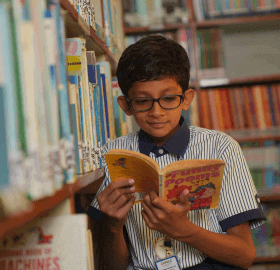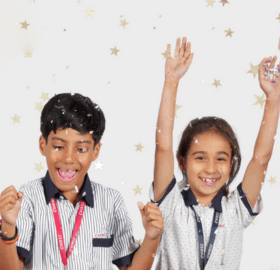Since 1989, CHIREC’s tried, trusted and innovative approach to a child’s first footsteps into formal schooling has been reassuring parents that their children are in good, caring hands and set fair for future success. At CHIREC, children benefit from a head start in their schooling and the formation of a solid foundation for their lifelong learning.
Preschool
The CHIREC Advantage for Lifelong Learning
Did you know that a child’s first years in school have a disproportionately high impact on the rest of their school and university education?
CHIREC’s Preschool programme helps children to develop the social and emotional competences to settle well into the first stages of their long voyage of discovery from Nursery to University. Our skilled and experienced teachers nurture our little new learners’ curiosity and cultivate essential skills for inquiry and exploration that are foundational to learning to read, write, compute mathematically and think. Our goal is to give them a love of learning and a sense of wonder that will last a lifetime and motivate them to study during even the most testing times of their long school careers.
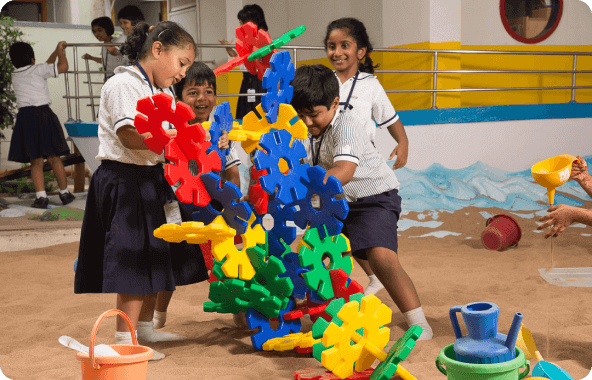
Playing for Learning
At CHIREC, we believe in the natural learning abilities of children. Our preschools in Hyderabad offer a stimulating environment with activities such as Show & Tell, Table-Top Cooking, Free Play, Screen-Free Robotics, Puppet Shows, Field Trips, and Pet Day. These experiences build creativity, imagination, and essential physical, social, and emotional skills.
A Safe & Caring Environment for Your Child
At CHIREC, we are a family. Our campuses are a welcoming and safe space for children to begin discovering the world around them. Each classroom of 26 to 30 students is supported by 2 teachers and 1 support staff. A home away from home, our child-friendly campuses are equipped with age-appropriate classrooms, play areas, library corners, gardens and puppet theatres to stimulate their young minds.
Our campuses and buses are secured with round-the clock CCTV monitoring. We have Lady Conductors who travel in buses along with the students and ensure that children are only handed over to parent-authorised personnel. Students’ RFID cards also help to track their movement.

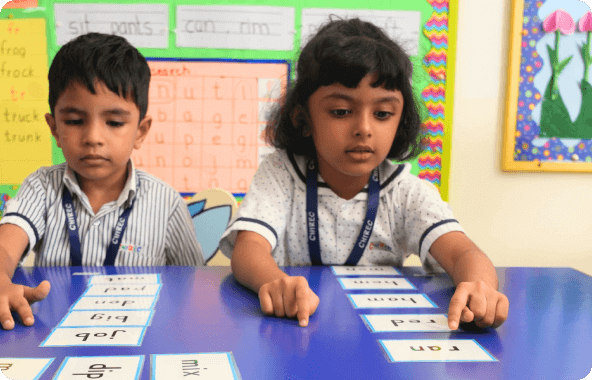
Building Strong Literacy & Numeracy Skills
Our preschool students take part in a custom-designed Literacy Programme that creatively introduces them to phonics followed by alphabets, allowing them to read faster and with more confidence. Our child-friendly characters take our students on a voyage of discovery through stories, helping them develop social and emotional skills and a love of reading from a young age. These healthy habits support the formation of strong reading, listening, and speaking skills.
Our numeracy programme incorporates sensory play, Montessori activities, and practical scenarios to help students count, measure, sort, identify patterns, solve number problems, and develop their logical thinking.
Achieving Early Developmental Milestones
We identify each child’s individual needs and in partnership with parents, gently guide them towards achieving their developmental milestones across the key areas:
- Language & Social Skills
- Physical Dexterity
- Inquiry–Based Learning
- Creative Thinking
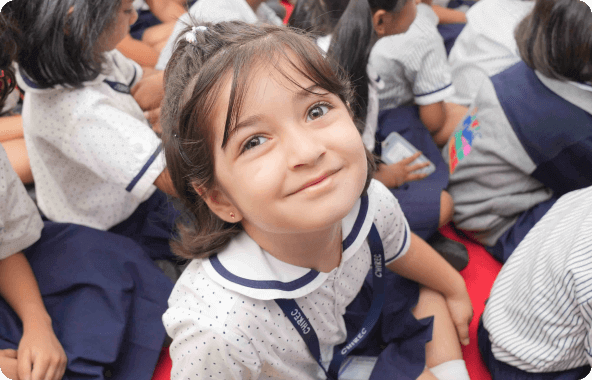
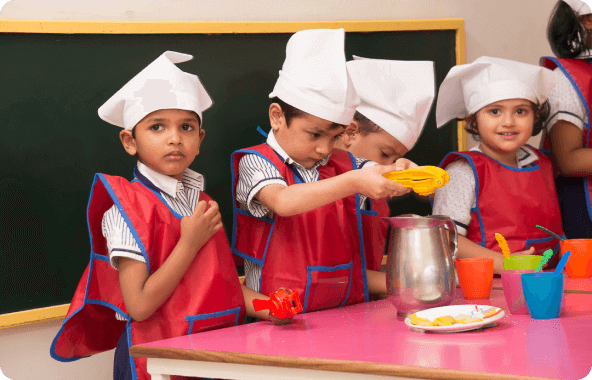
Cultivating Independence
Through the creative use of props and role plays, we guide children to discover the world around us. By participating in real-time scenarios such as gardening, visiting a fruit market, or boarding a plane, we inculcate a strong sense of student agency and independence that carries them through later years of life.
Celebrating Your Child’s Learning
As your child grows into a confident, curious and expressive individual, we celebrate them and their milestones. This goes a long way in developing their self-esteem and inspiring a love for lifelong learning. We keep students engaged and motivated by celebrating Colour Days, 25, 50 and 100 Days of School, Teachers’ Day, Children’s Day and more.
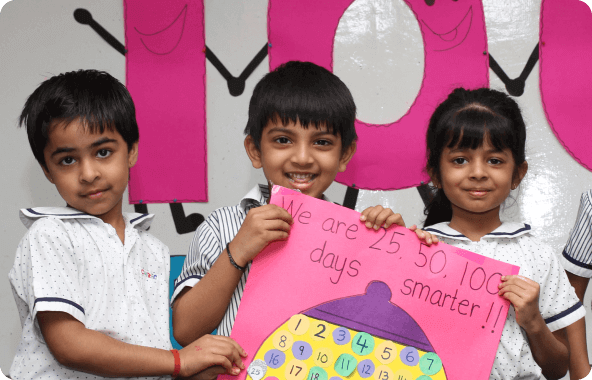
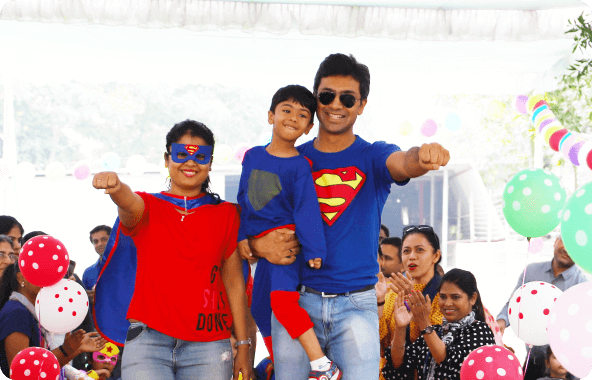
Active Engagement with Parents
Our parent community is a significant place for us. Parents are welcomed into our school and become involved in classroom activities through our Reading Programme, Know My Parent sessions, Coffee with Class Teachers, and attending various school events such as Curriculum Day, Children’s Day, and our Annual Concerts.
We also believe in seamless, timely and continual communication with parents through the Student Diary, Today@CHIREC updates, Weekly Transaction Reports, Monthly Newsletters, and informal and formal Parent-Teacher Meets throughout the year. To continuously improve our services, we also invite parents to audit the school’s safety, transport and lunch systems and share their feedback.
You might want to read
We are here to help!
Choosing the right school is an important step in your child’s future









